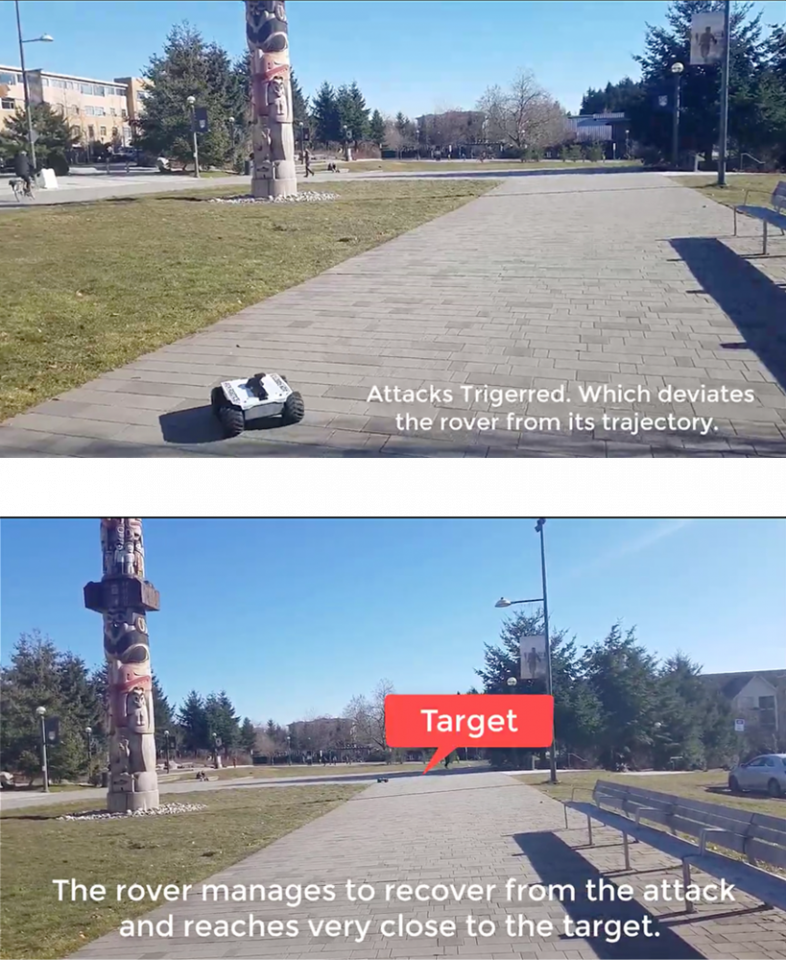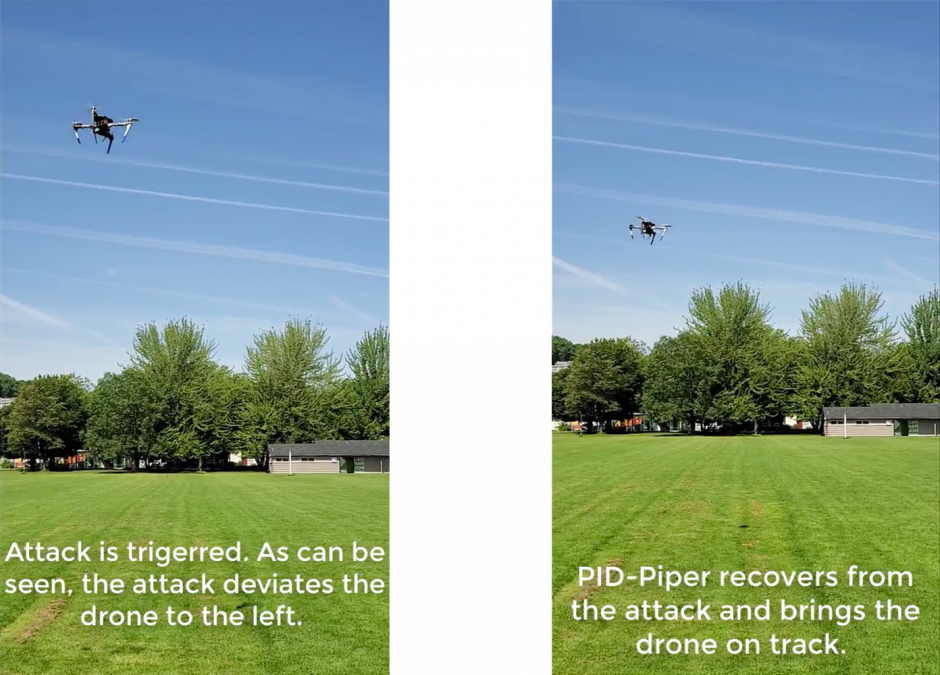
“The evolution of computer systems has transformed the way we live. With our increasing affinity for smart-everything and our increasing interactions with several connected devices in everyday life, the security of computer systems has become a huge concern. Finding solutions for these new challenges keeps me motivated.”
Pritam Dash is a first year PhD student in Electrical and Computer Engineering at UBC. Along with with Guanpeng Li (University of Iowa), Zitao Chen, Mehdi Karimibiuki, and Karthik Pattabiraman, he has recently published a new paper: “PID-Piper: Recovering Robotic Vehicles from Physical Attacks.” This paper was awarded the Best Paper Award at the recent IEEE/IFIP International Conference on Dependable Systems and Networks (DSN), 2021- number one out of nearly 300 total submissions!
In this interview, he discusses his recent award-winning paper, the future of safety for robotic vehicles, and why researching the security of autonomous systems is so important.
Testing the PID-Piper technique. You can watch the full video.
What is your winning paper about? Why is this line of research important?
In our paper, we present a new technique for mitigating sensor tampering attacks on autonomous robotic vehicles (RV), such as drones and rovers. Attackers can manipulate crucial sensors in RVs, like GPS or gyroscopes, and can hijack or crash RVs, resulting in damage and injuries- attacks like this have been performed on military and commercial drones. Our new technique, called “PID-Piper,” prevents the hijacking and the physical damage that can result from these attacks. What PID-Piper does is monitor the RVs during runtime to detect the attacks, and then, if it detects an attack, it activates a recovery controller that capacitates the RV to complete its mission despite the malicious interventions.
Autonomous systems such as drones and rovers are increasingly used, and make up a fast-growing industry. Attacks can disrupt critical missions and tasks, and this can have extensive economic impacts. And, as autonomous systems interact with us in the physical world, malicious intervention can cause people serious injuries. It’s important to identify and mitigate these security vulnerabilities before these systems are deployed widely.
What is the goal of your doctorate research? How does the topic of this paper fit into this?
In my doctoral research, I’m focusing on developing techniques to make autonomous systems safe and reliable. Basically, this involves analyzing the building blocks of autonomous systems (things like sensing and perception modules, control system, autonomous logic, and AI techniques) for vulnerabilities, and then mitigating these vulnerabilities. The goal of this is to enable autonomous systems such as RVs to operate normally, with minimal disruptions despite attacks or failure.
In this paper, we focused on one type of vulnerability- attacks targeting RV sensors. These attacks can’t be prevented by traditional software security techniques, so our attack resilient controller framework addresses this issue by enabling RVs to recover from sensor attacks and operate normally.

Testing the PID-Piper technique. You can watch the full video.
What is exciting to you about this topic?
Autonomous RVs have tremendous potential- not just in industrial sectors, but also for crucial tasks like carrying emergency medical supplies and assisting with disaster relief. Our research in the security and reliability of autonomous systems can help in developing safe and robust RV systems, and in ensuring that autonomous RV systems can handle even the worst possible circumstances. I believe that, by setting high safety standards, we can accelerate the use of autonomous systems in many more sectors and can begin to feel confident using RVs in everyday life.
What has motivated you to continue pursuing this research?
The evolution of computer systems has transformed the way we live. With the proliferation of connected devices, and our increasing interaction with them, the security and reliability of computer systems has become a huge concern. Our affinity for smart-everything has led to decentralization of computer systems and promotes autonomy in critical infrastructures like power grids, water treatment plants, in the automotive industry, etc. This presents new risks and challenges: intelligent designs and techniques must be developed to ensure the security and reliability of future computer systems. Finding solutions for these new challenges in a fast-evolving field keeps me motivated to pursue research in this area.
What has your career path looked like?
I completed my undergrad in Software Engineering at the Vellore Institute of Technology in India. During my undergrad, I’ve had some great opportunities- I worked at research institutes such as Fraunhofer SIT in Germany, and A*Star/NUS in Singapore. Following undergrad, I worked at the Technical University of Graz in Austria as a Research Engineer. After two years, I decided to return to graduate school and chose UBC for both my master’s and doctoral studies.
What advice do you have for a student interested in this field?
Designing and developing autonomous systems involves a lot of different types of expertise- namely in computer systems, robotics and control, signal processing, and computer vision. I’d encourage interested students to broaden their knowledge, even if it’s outside of their core area. The ECE department provides the perfect platform for this, with our wide range of courses offered, and we have professors who are experts in all of these fields.
Read about PID-Piper, watch videos of PID-Piper in action, and watch the full talk at IEEE.
Connect with Pritam on Linkedin.


